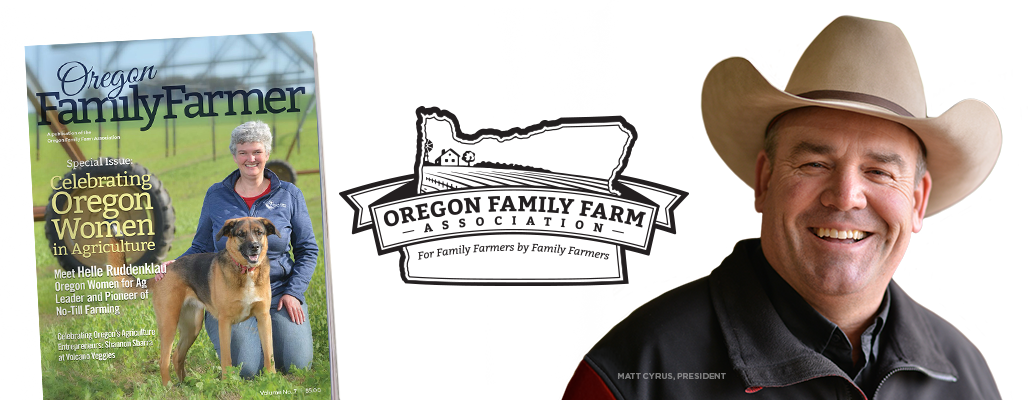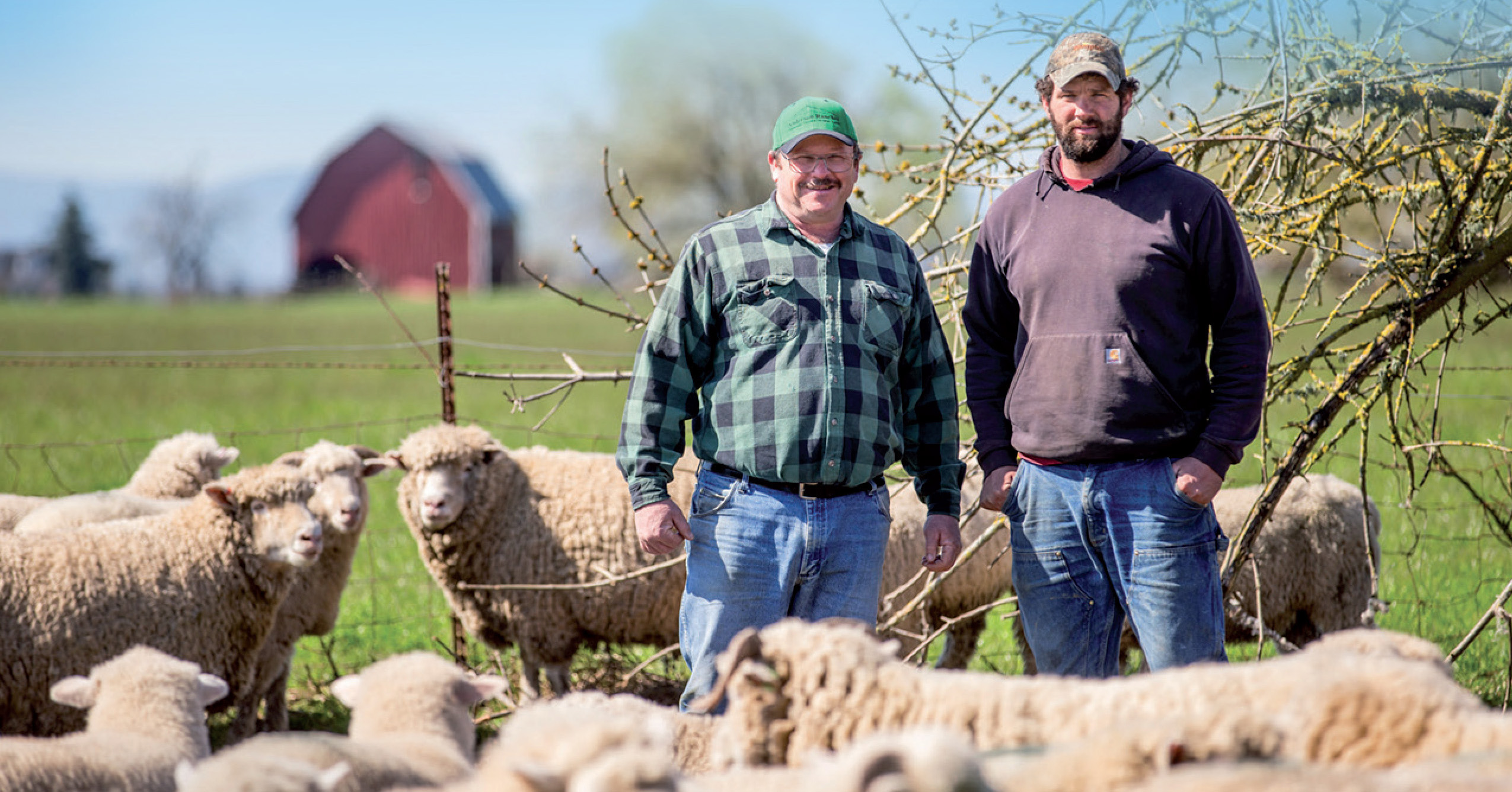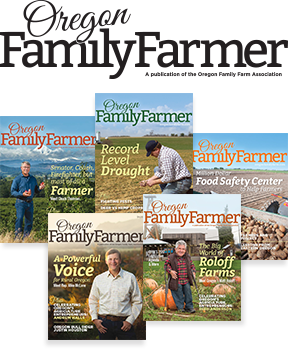BY DAVE REINHARD
Brownsville’s Reed Anderson and His Family Supply the Nation’s Best Steakhouses with Premium Grass-fed Oregon Lamb. It all started, naturally enough, at the dinner table. “People would come to our home for dinner and say, ‘My Gosh, this isn’t like any lamb we’ve ever had,” Reed Anderson recalls today.
That was back in the early 1980s. Reed and his wife Robin were recently married, raising sheep and growing grass seed at their place in Brownsville.
“I thought it was that my wife is a great cook,” he says, “but after a while I started thinking, ‘You know, we’ve got something here.’”
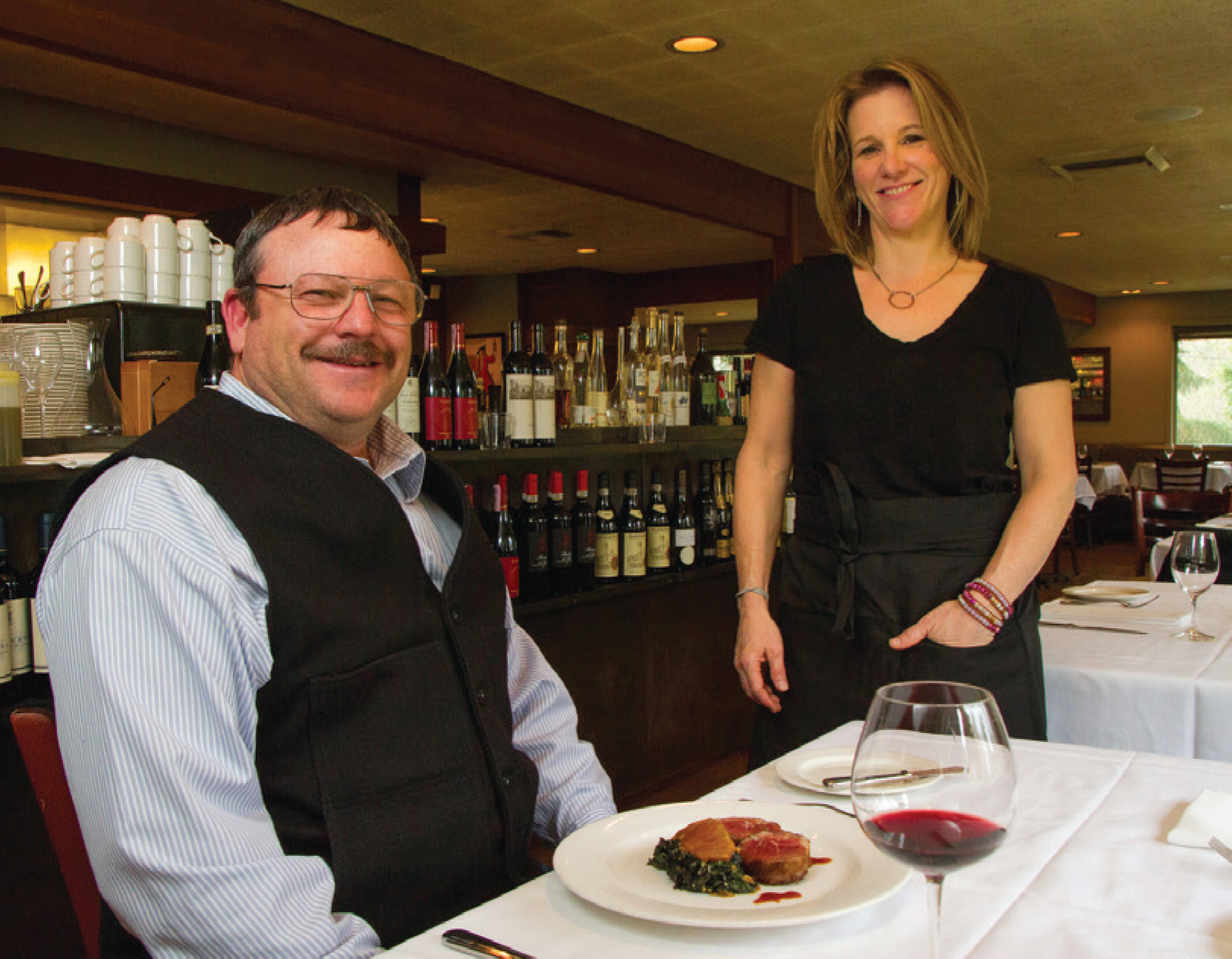 What Reed and Robin and their two sons Jake and Travis have more than 30 years later is an integrated ranch and processing operation that supplies premium grass-fed Oregon lamb to top steakhouses and restaurants from Seattle (Lola, The Metropolitan, the Space Needle) to Tampa (Bern’s) and New York City (Trump Tower) with places in between (Pirogue Grille in Bismarck, as well as the B&B Grill and Luxor Restaurants in Las Vegas).
What Reed and Robin and their two sons Jake and Travis have more than 30 years later is an integrated ranch and processing operation that supplies premium grass-fed Oregon lamb to top steakhouses and restaurants from Seattle (Lola, The Metropolitan, the Space Needle) to Tampa (Bern’s) and New York City (Trump Tower) with places in between (Pirogue Grille in Bismarck, as well as the B&B Grill and Luxor Restaurants in Las Vegas).
Robin and Reed were third- and fourth-generation sheep people respectively, but they were first generation entrepreneurs. They were out on their own, first raising sheep then, after more than a few lamb dinners for friends, processing their lamb through a specialty slaughter house to sell to a few area markets.
“I just saw a real need. It made a lot of sense,” Reed says with that easy humility that prompts comments from people in Oregon agriculture that Anderson is “one the nicest people you’ll ever meet.” He started selling two sheep a week. Today he’s up to 250 sheep a week (more than 2 million pounds a year) processed for the last three years at Anderson’s own facility (Kalapooia Valley Grass Fed Processing LLC).
“We were already sheep people. We already had the production dialed in. We knew how to produce animals of the same size and weight. That’s hard, especially in any kind of volume,” Reed notes matter-of-factly, before saying. “Once we started doing our own processing things started happening,”
The integration of production and processing — “conception to plate,” Reed calls it — is a key part of the Anderson lamb difference for both institutional and individual customers. It’s a difference you can taste. “We process the same breeds, the same size, eating the same thing 52 weeks a year,” Anderson says. “Restaurants love consistency. Diners want consistency. That’s been a big driver in our growth.”
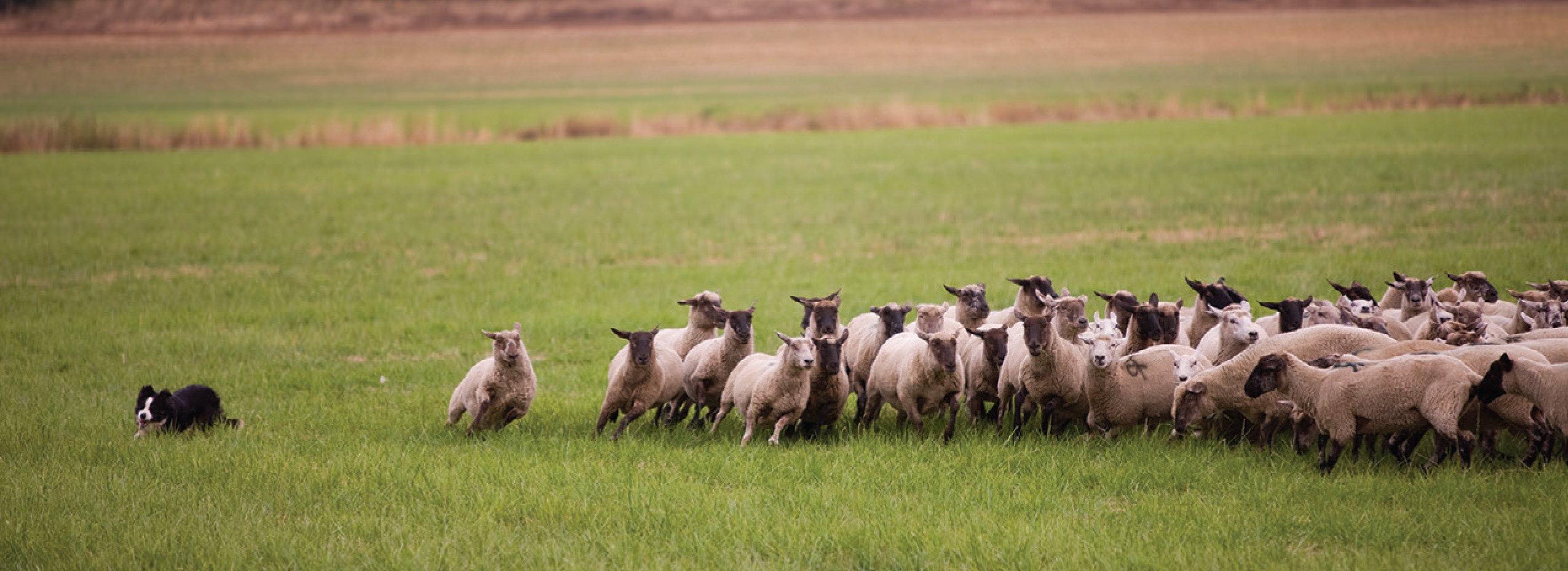 He is quick to point out, however, that it’s only part of the growth. Anderson’s most certainly a man who counts his blessings. He attributes his success to a hard-working family. Robin handles all the paperwork and bookkeeping. One son, Travis, oversees the meat company, and the other son, Jake, takes care of the farming and sheep-ranching side of the operation, which is itself integrated. Their lambs and sheep graze on the grass seed crops that the Andersons sell as far away as China.
He is quick to point out, however, that it’s only part of the growth. Anderson’s most certainly a man who counts his blessings. He attributes his success to a hard-working family. Robin handles all the paperwork and bookkeeping. One son, Travis, oversees the meat company, and the other son, Jake, takes care of the farming and sheep-ranching side of the operation, which is itself integrated. Their lambs and sheep graze on the grass seed crops that the Andersons sell as far away as China.
Indeed, Anderson knows that his success also depends on the fact that he can produce lambs year round, thanks to the cool moist climate and fertile land of the Willamette Valley. That cannot happen in other regions, which makes Linn County the “grass seed capital of the world.”
“Year-long production is the advantage we have,” he says. All year long Anderson’s 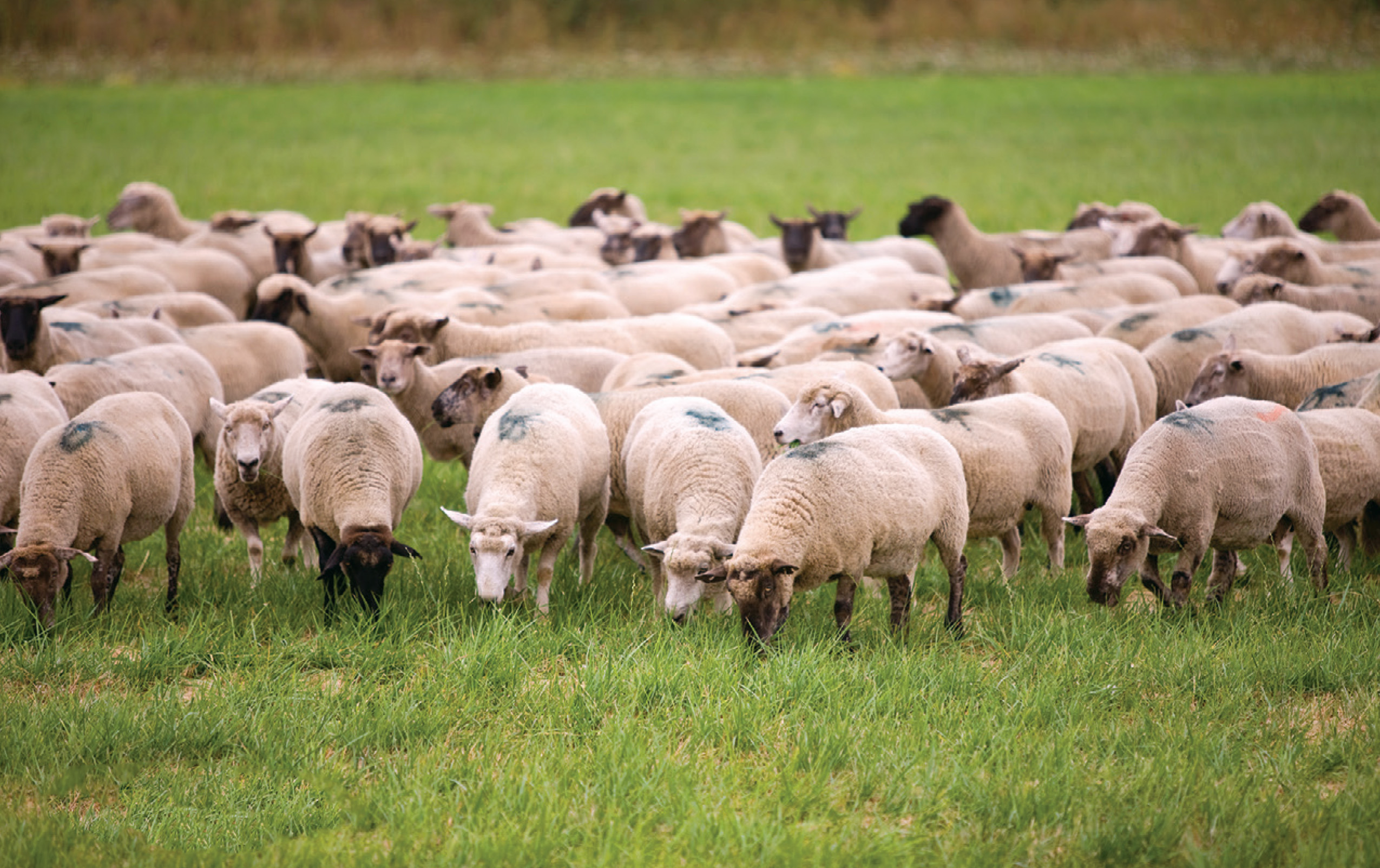 lambs have pasture aplenty in the croplands beneath the Coburg foothills of the Cascade. His sheep graze on his grass crops all winter and into May. They also graze the hill pastures that are not farmed. They eat and grow and roam the fields at their own stress-free rhythm and pace.
lambs have pasture aplenty in the croplands beneath the Coburg foothills of the Cascade. His sheep graze on his grass crops all winter and into May. They also graze the hill pastures that are not farmed. They eat and grow and roam the fields at their own stress-free rhythm and pace.
Because the Anderson processing facility is just minutes away and his lambs are accustomed to moving from one field to another by truck, they are not stressed out when it comes time for processing. Anderson’s operation has not only earned the Certified Humane label, but it also contributes to the Anderson lamb taste difference.
Nobody will ever mistake the down-to-earth Reed Anderson for a cutting-edge fashionista. He’d likely recoil at the very thought. Yet, his approach to raising and processing lambs was cool before it became cool to be organic, humane, local and sustainable. With lamb consumption growing across the country, and growing most in the Pacific Northwest, Reed Anderson and Anderson Ranches Oregon Lamb is positioned for continued growth.
It couldn’t happen to a nicer guy
For more information about Anderson Ranch grass-fed lambs go to oregonlamb.com
